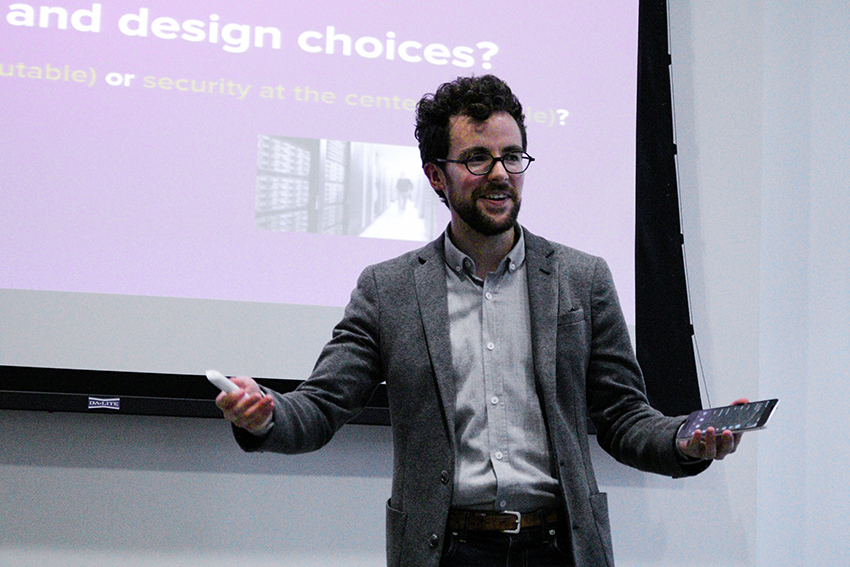While most people have heard of different kinds of virtual currencies such as Bitcoin, almost no one has an understanding of how they operate, what they are capable of and what risks they can present, a virtual currency professional said at a Wednesday presentation.
Hosted by the UT Center for Politics and Governance, the presentation featured Research Director Peter Van Valkenburgh of Coin Center, a Washington D.C.-based nonprofit research and advocacy center that focuses on public policy issues facing virtual currency technologies. Virtual currency systems are not owned by single corporations, so Coin Center steps in to advocate for them, Valkenburgh said.
Valkenburgh said each of the virtual currency systems have different levels of privacy and security, despite the fact that they all branch from the same idea that Bitcoin began with in 2009. Some are transparent with easily accessible user transactions, while others use encryption to protect user information.
“You often read in newspapers that Bitcoin is the ‘anonymous and secret transaction system of the internet,’ but it’s actually extremely transparent,” Valkenburgh said. “Your name isn’t public, but it’s easy to see your transactions.”
Lauren Thannisch, communications and events senior director at the Center for Politics and Governance, said a lot of people are hesitant to adopt this technology.
“It’s one of those technologies that can go either way,” Thannisch said. “It’s like self-driving cars, which people are hesitant about because they like to drive. People like to be more in control with their purchases.”
Economics junior Saul Cornejo Bravo said he sees virtual currencies becoming more common through technological advancements.
“I see now that it’s the future for transactions,” Cornejo Bravo said. “The problem now is regulation.”
Valkenburgh addressed some of these regulation issues that arise with virtual currencies.
“This happens without an intermediary in between,” Valkenburgh said. “(These systems) are often used by criminals. Drug dealers use it to sell drugs. One day, it could be used to finance terrorism. I could violate U.S. sanctions by unknowingly giving money to someone in Iran. So why should people be allowed to use them?”
Valkenburgh said people who understand technology will be able to access virtual currency systems through virtual private networks, even if it’s not allowed in their countries. A ban would only keep the poor and uneducated from using the systems, and it’s too late to outright outlaw the technology, Valkenburgh said.





















